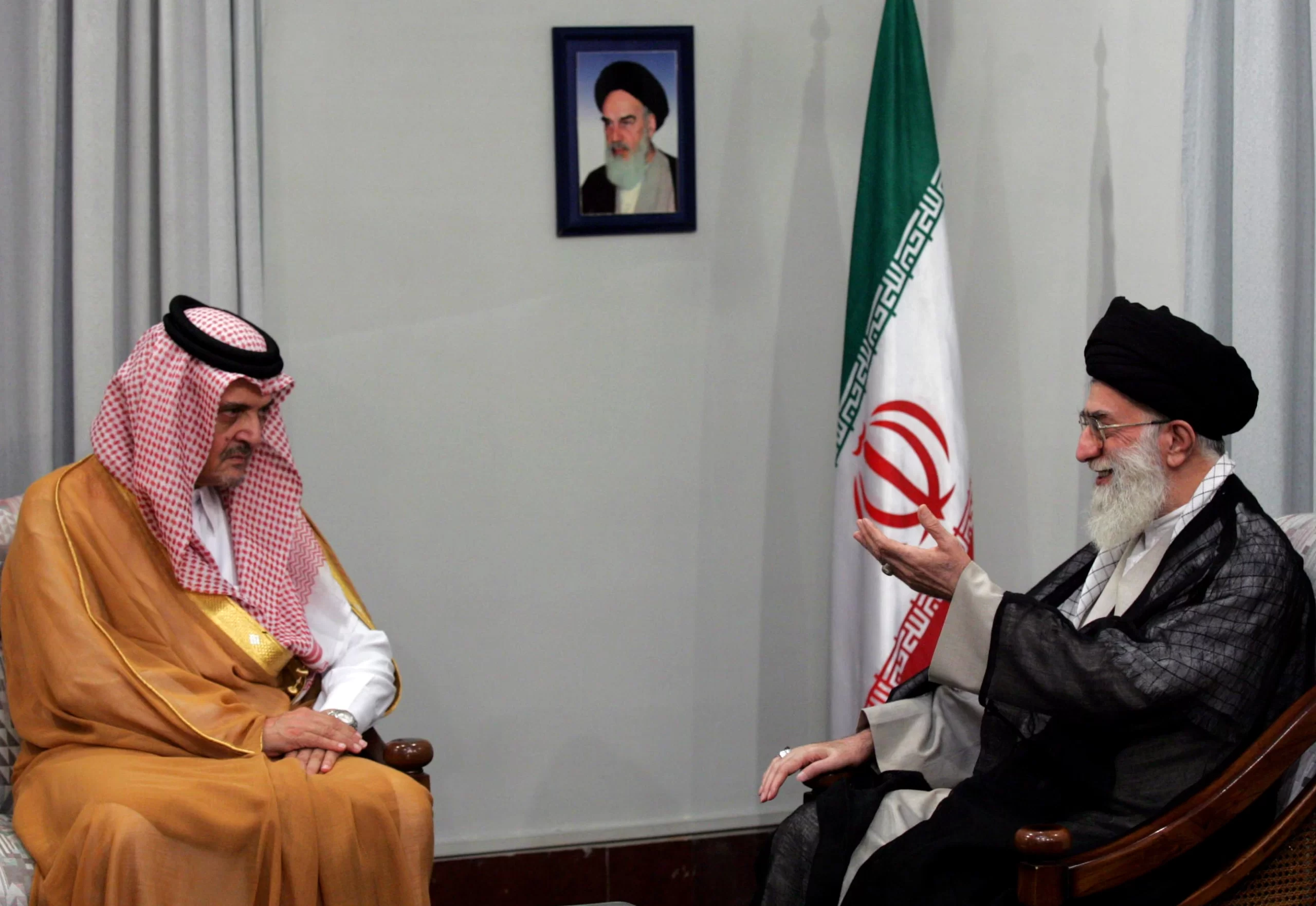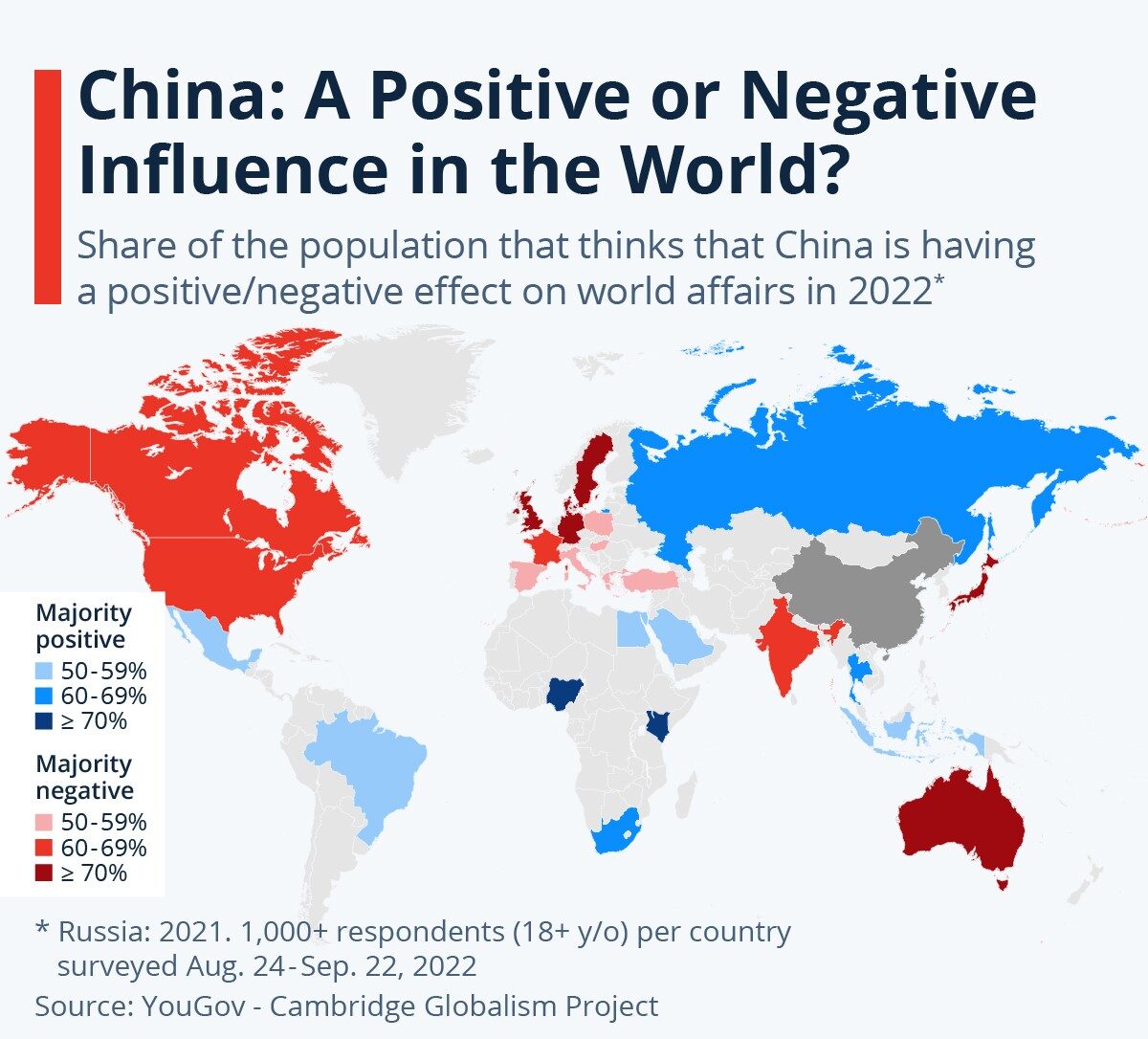
The balance of power in the current geopolitical conflict is pivoting from American hegemony to the Asian continent. In order to preserve or change the balance of power in international relations, support and ties with other nations are crucial. Saudi Arabia and Iran, along Middle Eastern nations, play a significant role in this regard. These nations have always been crucial in determining the global order, from colonialism through the Cold War and even post-Cold War, because of their oil wealth and geostrategic importance.
China and Russia have had room to move in the Middle East as a result of the US's shift to the Indo-Pacific area, deteriorating US-Saudi relations, antagonism between the US and Iran, reconciliation between the KSA and Iran, and the escalating Cold War.
The US has been fostering closer ties with India, ASEAN, and even Solomon Island nations in an effort to restrain China, which poses a serious challenge to its superpower status. Also, the US has attempted to impose its principles on other nations throughout history, and as a result, its practice of policing has led nations to seek new partners.
President Biden has firmly said that due to abuses of human rights, the United States will not help Saudi Arabia in its conflict with Yemen. Saudi Arabia is only receiving security and defensive weapons from the US; it is not permitted to receive aggressive weapons for use against Yemen.
Additionally, Saudi Arabia is transitioning away from its reliance on oil as part of its 2030 vision, and it is at this point when strengthening ties with China and Russia are crucial. Third, by allowing trade between Iran and Russia, the sanctions imposed by the US on those two nations have lessened the economic harm they caused.
To start, relations between China and Saudi Arabia have been becoming better in the military and technological fields. Since the US is no longer providing Saudi Arabia with offensive weaponry to use against Yemen, China can now fully meet this need. China's policy is to strengthen bilateral ties without interfering with a state's internal issues. China is supplying Saudi Arabia with C-H4 drones that it can use in Yemen.
Additionally, Saudi Arabia is attempting to expand its arms sales with China. By offering swarm drones, hypersonic missiles, surveillance, and artificial intelligence technology can make it easier. As the most extensive US arms customer, Saudi Arabia's policy has undergone a significant transformation.

China is also making significant investments in Saudi Arabia's economic and technological development. China and Saudi Arabia recently finalised a $500 billion agreement for the construction of the megacity Neom. The US considers Huawei, a technology behemoth from China, to be a tool used by China for espionage. Huawei is also a part of the transaction. As part of this agreement, Huawei will construct high-tech buildings while also offering data centres and cloud computing.
Alongside this, China has also agreed to a joint venture with Sense Time, a Chinese tech company that is likewise prohibited by the US, for around $207 million. China will open a facility for artificial intelligence in Saudi Arabia as part of this arrangement. The Belt and Road Initiative (BRI) also includes the Middle East. China alone has invested $5.5 billion in Saudi Arabia after signing a 25-year agreement with Iran in 2022.
The United States interpreted Saudi Arabia's recent announcement that it will reduce its daily oil production by 200 million barrels as an effort to favor Russia. Yet, Saudi Arabia's official position is that the choice was primarily motivated by domestic considerations. In addition, Russia is assisting Saudi Arabia militarily, particularly with the construction of nuclear reactors.
These shifting patterns in relations demonstrate how China and Russia have benefited greatly from the void left by the pivot to Asia. China has included Iran in its BRI initiative and is also purchasing inexpensive oil from Iran, which it would not otherwise be able to sell on the world market. Additionally, Russia is strengthening its diplomatic and economic connections with Iran.
Western nations have asserted that Iran supplied Russia with drones for the conflict in Ukraine, notably the Shahed-136 and Mohajer-6. Russia has been supplying Iran with military and technical assistance in return. Russia is reportedly set to give Iran 24 Sukhoi Su-35 fighter jets, which will help modernise and expand the country's air force.
The US's regional national interests are in danger due to Russia's growing military ties to Iran. Also, Russia is strengthening its business connections with Iran in the hydrocarbons sector. A MoU worth $40 billion was signed by the state-owned Russian business Gazprom in order to develop gas projects, including LNG terminals, in Iran. Also, it has promised to set up trade hubs for both countries, which will enable Iran to handle massive shipments from Russia via India.
Russia is also working with Iran and India to create a trade route. The corridor will leave Europe behind as it ascends from the Persian Gulf to the Caspian Sea. By establishing this trade connection, Iran and Russia can dodge European sanctions that would force them to reroute their supply networks. As a result of this, Russia will have direct access to the markets in South Asia, which is a significant accomplishment.
It will be a turning point in world history when Iran and Saudi Arabia, two long-time adversaries, reconcile. As China mediated the agreement between these two nations, it will have a greater political and economic influence in the region. The conflict and proxy battles in Yemen, Syria, and other Middle Eastern nations will decline as a result of this reconciliation. Hence, the US has less room to move in the area. It might not be incorrect to say that China and Russia are on the path to occupy the space that the US once had in the Middle East after assessing the region's overall shifting circumstances.
China and Russia have had room to move in the Middle East as a result of the US's shift to the Indo-Pacific area, deteriorating US-Saudi relations, antagonism between the US and Iran, reconciliation between the KSA and Iran, and the escalating Cold War.
The US has been fostering closer ties with India, ASEAN, and even Solomon Island nations in an effort to restrain China, which poses a serious challenge to its superpower status. Also, the US has attempted to impose its principles on other nations throughout history, and as a result, its practice of policing has led nations to seek new partners.
President Biden has firmly said that due to abuses of human rights, the United States will not help Saudi Arabia in its conflict with Yemen. Saudi Arabia is only receiving security and defensive weapons from the US; it is not permitted to receive aggressive weapons for use against Yemen.
Additionally, Saudi Arabia is transitioning away from its reliance on oil as part of its 2030 vision, and it is at this point when strengthening ties with China and Russia are crucial. Third, by allowing trade between Iran and Russia, the sanctions imposed by the US on those two nations have lessened the economic harm they caused.
To start, relations between China and Saudi Arabia have been becoming better in the military and technological fields. Since the US is no longer providing Saudi Arabia with offensive weaponry to use against Yemen, China can now fully meet this need. China's policy is to strengthen bilateral ties without interfering with a state's internal issues. China is supplying Saudi Arabia with C-H4 drones that it can use in Yemen.
Additionally, Saudi Arabia is attempting to expand its arms sales with China. By offering swarm drones, hypersonic missiles, surveillance, and artificial intelligence technology can make it easier. As the most extensive US arms customer, Saudi Arabia's policy has undergone a significant transformation.

China is also making significant investments in Saudi Arabia's economic and technological development. China and Saudi Arabia recently finalised a $500 billion agreement for the construction of the megacity Neom. The US considers Huawei, a technology behemoth from China, to be a tool used by China for espionage. Huawei is also a part of the transaction. As part of this agreement, Huawei will construct high-tech buildings while also offering data centres and cloud computing.
Alongside this, China has also agreed to a joint venture with Sense Time, a Chinese tech company that is likewise prohibited by the US, for around $207 million. China will open a facility for artificial intelligence in Saudi Arabia as part of this arrangement. The Belt and Road Initiative (BRI) also includes the Middle East. China alone has invested $5.5 billion in Saudi Arabia after signing a 25-year agreement with Iran in 2022.
The United States interpreted Saudi Arabia's recent announcement that it will reduce its daily oil production by 200 million barrels as an effort to favor Russia. Yet, Saudi Arabia's official position is that the choice was primarily motivated by domestic considerations. In addition, Russia is assisting Saudi Arabia militarily, particularly with the construction of nuclear reactors.
These shifting patterns in relations demonstrate how China and Russia have benefited greatly from the void left by the pivot to Asia. China has included Iran in its BRI initiative and is also purchasing inexpensive oil from Iran, which it would not otherwise be able to sell on the world market. Additionally, Russia is strengthening its diplomatic and economic connections with Iran.
Western nations have asserted that Iran supplied Russia with drones for the conflict in Ukraine, notably the Shahed-136 and Mohajer-6. Russia has been supplying Iran with military and technical assistance in return. Russia is reportedly set to give Iran 24 Sukhoi Su-35 fighter jets, which will help modernise and expand the country's air force.
The US's regional national interests are in danger due to Russia's growing military ties to Iran. Also, Russia is strengthening its business connections with Iran in the hydrocarbons sector. A MoU worth $40 billion was signed by the state-owned Russian business Gazprom in order to develop gas projects, including LNG terminals, in Iran. Also, it has promised to set up trade hubs for both countries, which will enable Iran to handle massive shipments from Russia via India.
Russia is also working with Iran and India to create a trade route. The corridor will leave Europe behind as it ascends from the Persian Gulf to the Caspian Sea. By establishing this trade connection, Iran and Russia can dodge European sanctions that would force them to reroute their supply networks. As a result of this, Russia will have direct access to the markets in South Asia, which is a significant accomplishment.
It will be a turning point in world history when Iran and Saudi Arabia, two long-time adversaries, reconcile. As China mediated the agreement between these two nations, it will have a greater political and economic influence in the region. The conflict and proxy battles in Yemen, Syria, and other Middle Eastern nations will decline as a result of this reconciliation. Hence, the US has less room to move in the area. It might not be incorrect to say that China and Russia are on the path to occupy the space that the US once had in the Middle East after assessing the region's overall shifting circumstances.

